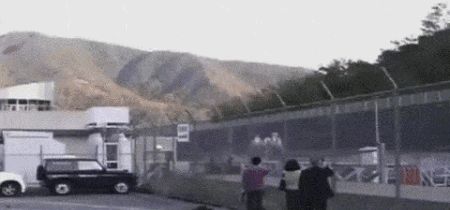Scrapyard
=
Cementerio de chatarra




Did you know that electricity and magnetism
are best friends? ... Even if it sounds like a
weird combination initially, once you know
how it works, it makes a lot of sense!
We can actually use electricity to transform a metal into a magnet. This is called an electromagnet. Electromagnets are essentially magnets that can be turned on and off with the help of electricity. They work by using an electric current to generate a magnetic field, which in turn creates a magnetic force.
We could understand this way better with this analogy:
Think of an electromagnet as a superhero that only comes to life when he puts on his cape (the electric current). When the superhero is wearing his cape, he has superpowers (the magnetic force). But when he takes off his cape (turn off the electricity), he's just a regular person again.
Similarly, an electromagnet is just a piece of metal that becomes magnetic when an electric current runs through it. When the current is turned off, the metal goes back to being non-magnetic.
Electricity can produce magnetism, and
vice-versa, we can use magnets to produce
electricity (actually this is how we create
most of the electricity in Colombia, the
hydroelectric power plant creates electricity
by making rotate magnets in a motor with the
the help of water).
1) After watching the BRAINPOP video answer this:
a) Write 3 characteristics of electromagnets
b) Mention 2 applications of electromagnets
2) Go to the MOCOMI or the DUCKSTERS website, then draw and explain the right hand rule, how does it work?
3) Watch this VIDEO to see one of the applications of electro magnets and visit the APEXMAGNETS website and IOP the website and answer:
a) How are electromagnets used in a scrapyard?
b) Why does it have to be an electromagnet
and not a regular magnet? Mention 2 advantages
4) Watch the video about
"How to create an electromagnet"
Draw the electromagnet on your
notebook and explain how is it made.
5) Some applications of magnets are incredible and futuristic. This is the case of the Maglev trains. Visit this TimeForKids site and read everything about these trains, then write a "letter" in your notebook telling a friend that you are going to travel on one of these trains, make sure you include:
-
Where is it located?
-
What's its speed?
-
How do they work?
Have you ever wondered why our hair stands up when we rub a balloon on it?, or how thunderstorms form? Even if these two examples seem like they have nothing in common, they are caused by the same phenomenon: Static electricity.
Today we will learn the concept of
electrostatics, and we will understand
why from time to time we get a little
electric shock when we touch a friend
or an object that was charged with this
kind of energy.
Before we use the notebook to answer the questions, follow the teacher for an active pause.
Then, explain:
1) What is the characteristic of the floor you
were walking on? and what happened to
some of the students who were there when
they touched the banister?
2) Watch the KidsShouldSeeThis video and explain what happens when a positively charged object gets in touch with a negatively charged one? Use this to explain what happened to the girls in the Terraza.
3) Draw and explain the experiment shown by the teacher. What was the charge of these objects? how did they react when Lina tried to get them closer?
4) Visit the SCienceLearn.org website and draw the 3 cases shown there (balloon-hair, balloon-ballon and balloon-can). Make sure you show the charges of the objects in each case. Explain what is happening in each example (do they repel or attract each other?)
5) Magnetism and static electricity are very different types of energy. However, they share some rules, what do they have in common? (Think about the rules related to poles and charges)
Today we will finish learning about this physics unit. So in order to check what we have learned in the previous weeks, you will solve 2 activities: one in nearpod and one in schoology.
Week 7
Class 1: Electromagnets






Class 2: Electrostatics



Class 3: End of unit activities


